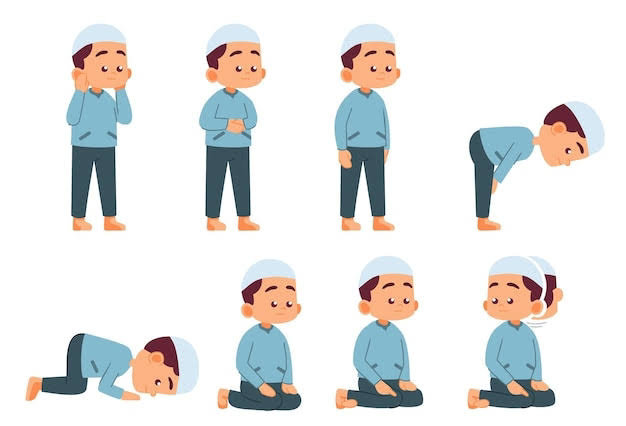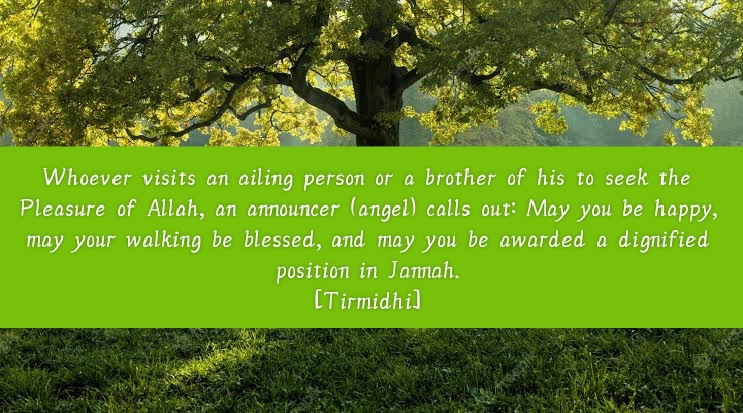Wednesday, September 13, 2023
Authority of one muslim over another muslim
Tuesday, September 12, 2023
What is (HARAM) forbidden in Islam and why?
What is (HARAM) forbidden in Islam and why?
Alcohol and intoxicants (khamar):-
"Allah says in Quran"They ask you (0 Muhammad) concerning alcoholic drink and gambling. Say: In them is a great sin, and (some) benefits for men, but the sin of them is greater than their benefit""(SURAH AL-BAQARAH AYAT 2:219)"
Pig meat and its products:-
Usury (Riba):-
Gambling (Masir):-
Adultery and adultery:-
Theft (सरिकाः):-
Lying and Lying (Qadib):-
Backbiting (Gheeba):-
Murder and Unlawful Killing:-
Idolatry (Shirk):-
Halal Eating animals that have not been properly slaughtered (Dhabiha):-
Engaging in slander and false accusations (Qadaf):-
"Some people asked Allah's Messenger (ﷺ), "Who is the best Muslim? He replied, "One who avoids harming the Muslims with his tongue and hands." And a Muhajir (migrant) is one who leaves what Allah has made haram"
Sunday, September 10, 2023
Repentance (Tawbah) and forgiveness in Islam
Repentance (Tawbah):
Sincere Regret:-
Ceasing the Sin:-
Seeking Forgiveness:-
Making Amends:-
Resolve Not to Repeat:-
Forgiveness in Islam:
KIND SPEECH AND FORGIVENESS ARE BETTER THAN CHARITY FOLLOWED BY INJURY. AND ALLAH IS FREE OF NEED AND FORBEARING."- [Quran, 2:263]
Allah's Mercy:-
Conditions for Forgiveness:-
Intercession:-
Ramadan:-
How to live your life according to islam
You should lead your life according to Quran and Hadith.
1. Faith (Iman):-
2. Five Pillars of Islam:-
1) Shahada (Faith):-
2) Salat (Prayer):-
3) Zakat (Charity):-
4) Sawm (Fasting):-
5) Hajj (Pilgrimage):-
3.Morality and Ethics:-
4. Islamic Jurisprudence (Fiqh):-
5. Recitation of Quran:-
6. Seek Knowledge:-
7. Community Involvement:-
8. Family Values:-
9. Dawah (Invitation):-
10. Avoid Haram (Forbidden):-
11. Repentance and Forgiveness:-
12. Patience and Gratitude:-
Wednesday, August 9, 2023
What islam teaches us
Islam teaches us
1. Monotheism:-
Belief in one God. Allah is Merciful and Almighty. In Islam the belief in one God, known as "TAWEED," is the central tenet of the religion. The concept of TAWHEED is derived from the Arabic word (Wahid) which means "one." The Islamic belief in one God is expressed in the declaration of faith or "Shahada," Allah is one and Muhammad ﷺ is the Messenger of Allah and followers."
2. Quran:-
3. Prophets:-
4. Five pillars of Islam: -
5. Ethics in Islam:-
6. Brotherhood in Islam :-
"The Prophet mohmmed said. "He is not a true believer who eats his fill while his neighbour is hungry".(No matter what religion your neighbor belongs to)"
7.Modesty and chastity in Islam:-
8. Respect for others in Islam :-
Thursday, August 3, 2023
Have Faith (تَوَكُل) on Allah
Muslims (We) are believe (تَوَكُل) Allah is only one.
Tuesday, August 1, 2023
Islam's Health Guidelines
How Islam teaches us to take care of our health
Dietary Guidelines
Cleanliness
Physical activity:-
"Boxing is not allowed in Islam because a Muslim should not punch people in the face. Islam encourages exercise and sports, but Muslims must be careful that their exercise does not lead them to something that is unacceptable".
Mental Health:-
"Allah says in QuranAnd We will surely test you with something of fear and hunger and a loss of wealth and lives and fruits, but give good tidings to the patient,(SURAH AL-BAQARAH AYAT 2:155)"
Sleep and rest
"Narrated `Abdullah bin Amr"Allah's Messenger ﷺ said, "O Abdullah! Have I not been formed that you fast all the day and stand in prayer all night?"I said, "Yes,ﷺ said, "Do not do that! Observe the fast sometimes and also leave them (the fast) at other times; stand up for the prayer at night and also sleep at night. Your body has a right over you, your eyes have a right over you and your wife has a right over you."
Abstaining from harmful substances:-
"Allah says in Quran"They ask you (0 Muhammad) concerning alcoholic drink and gambling. Say: In them is a great sin, and (some) benefits for men, but the sin of them is greater than their benefit""(SURAH AL-BAQARAH AYAT 2:219)
Caring for the sick:-
Muslims are encouraged in Islam to visit and care for the sick, to show kindness and help to those in need.
The Prophet Mohammad ﷺ said: "If a person becomes ill, Allah rewards him for his illnesses."
-Sahih Bukhari, 550,
Sahih Muslim, 6235
Narrated 'Abu Hurairah (ra):The Messenger of Allah ﷺ said, "Every Muslim has five rights over another Muslim (i.e., he has to perform five duties for another Muslim): to return the greetings, to visit the sick, to accompany funeral processions, to accept an invitation, to respond to the sneezer [i.e., to say: 'Yarhamuk-Allah (may Allah bestow His Mercy on you),' when the sneezer praises Allah]"Riyad as-Salihin, The Book of Visiting the Sick Book 7, Hadith 895 [Al-Bukhari and Muslim]
Balancing work and rest:-
Islam encourages a balanced approach to work and rest, promoting a healthy work-life balance.
Work-life balance is essential to a Muslim’s life. Islam emphasizes balancing work and personal life, caring for physical and mental health, prioritizing family and social relationships, and engaging in charitable work. By following these principles, Muslims can lead a fulfilling and balanced life, which is pleasing to Allah and beneficial for themselves and their community.
Environmental responsibility:-
Islam teaches stewardship of the earth and encourages protection of the environment, which has a direct impact on human health.
Humans who mismanage natural resources, including excessive environmental exploitation, resulting in industrial pollution, damage to ecosystems, and mismanagement of natural resources, are detestable to God Almighty, as the verses of the Qur'an make clear . To appear:
"And they quarrel and create mischief in the whole earth, and Allah does not like mischief-makers.
(Quran. 5: 64)
By following these principles, Muslims can maintain good physical, mental and spiritual health, which is essential to living a fulfilling life. Always consult health care professionals for personal advice on health matters.
Taking care of your health is considered important in Islam. It is encouraged to maintain a balanced lifestyle that includes a healthy diet, regular exercise, and good hygiene practices. Additionally, it is highly recommended to seek medical treatment when required, as the protection of health is seen as a valuable gift from Allah. Adherence to the teachings of Islam, which includes moderation in all aspects of life, can contribute to well-being and physical health.
Wednesday, July 26, 2023
The Rise and Evolution of the World of Islam
The Rise and Evolution of the World of Islam
Origin of Islam:-
Islam's teachings and worldview
what does islam teach:-
There are five pillars of Islam:-
Saturday, July 22, 2023
Rights of daughter in Islam
Rights Of Daughter's, According To Islam
status of muslim women in islam by hadees And Quran:-
Right to Upbringing and Care:
Right to Education:
Right on father's property and wealth:
Narrated AishaA lady along with her two daughters came to me asking (for some help), but she found nothing with me except one datewhich I gave to her and she divided it between her two daughters, and did not eat anything herself, and then she got up and went away. Then the Prophet Mohammad ﷺ came in and I informed him about this story. He said, "Whoever is put to trial by these daughters and he treats them generously (with benevolence) then these daughters will act as a shield for him from Hell-Fire."(See Hadith No. 24, Vol. 8) Bukhari (Book 124, Hadith #499)
- Duty to cover oneself properly to stay safe in society.
- Duty to uphold one's dignity.
- It is his duty to take care of his family.
- When it comes to non-mahram, stay within the bounds of duty.
- It is your duty to be loyal to your father, husband and keep your Imaan safe and sound.
"Our Prophet Mohammad ﷺ said if anyone has daughters, who are looks after properly, Paradise is guarenteed for him. Your daughters will become your protection on the Day of judgement.Prophet Mohammad ﷺ also said Whoever supports two girls till they attain maturity, he and I will come close to each other on the Day of judgement. The Messenger of Allah ﷺ joined his two fingers to illustrate closeness." [Muslim]
Nikaah (Marriage)
Marriage or Nikaah is of undeniable importance in Islam. It is a way for a man and a woman to fulfill their natural desires properly and in a halal manner without turning towards sin. Just as a man has the right to take pleasure from his wife, similarly the wife has the right to do the same. Intimacy and acts of affection increase the love between husband and wife which leads to a peaceful and happy family.Nikaah
"As wise people say, a successful marriage requires falling in love with the same person over and over again"
"The Holy Qur'an says: "They (your wives) are like a garment to you, and you are like a garment to them" (2:187).
Allah says in Quran about Nikah:-And how could you take it while you have gone in unto each other and they have taken from you a solemn covenant?(Surah An-Nisa Ayat 21)
"The Prophet Muhammad ﷺ encouraged Muslims to accept invitations to attend marriage ceremonies and wedding feasts: "...and whoever refuses to accept an invitation to a marriage feast, verily disobeys Allah and His Prophet".[Ahmed and Abu Dawood]
"The groom does not need a Wali at the time of the marriage contract, if a person is immature or insecure, he needs a wali (guardian). However, if he is of sound mind, he does not need a Wali. but the woman does need a Wali.Narrated by 'aisha':Prophet Muhammad ﷺ said, "Any woman who marries without a Wali, her marriage is invalid, invalid, invalid." [Narrated by al-Tirmizi, 1102;]
The Messenger of Allah Prophet Muhammad ﷺ said:"There is nothing like marriage, for two who love one another."










































